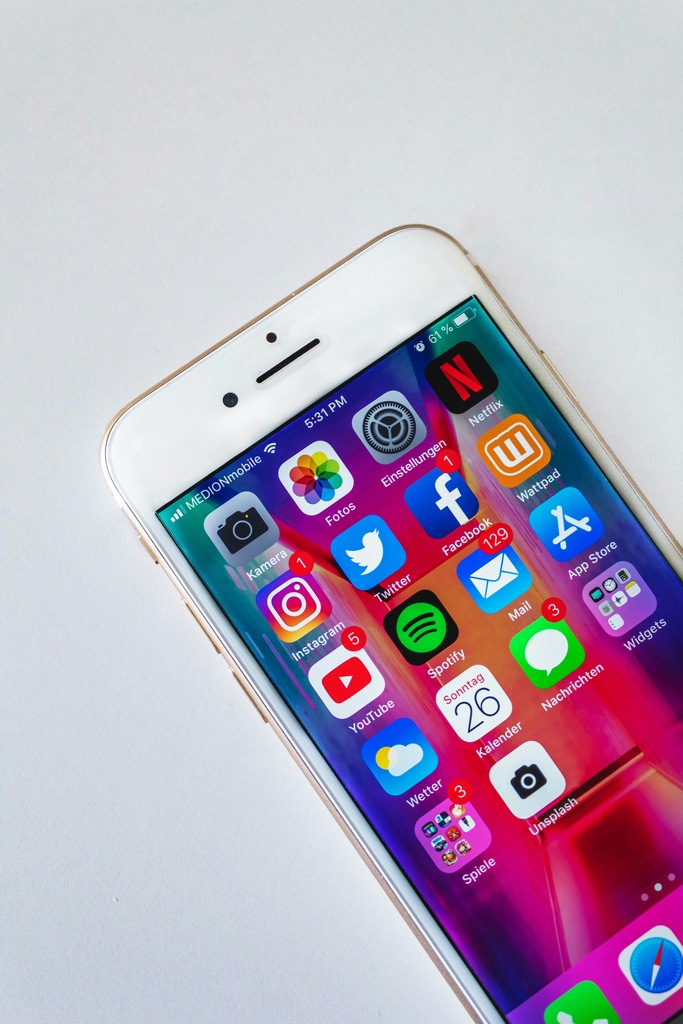Updated in January 2025!
Do you dream of becoming a digital nomad, working remotely, and traveling the world? Do you enjoy writing and think you could create content for clients? If so, becoming a digital nomad copywriter might be perfect for you!
I’ve worked as a full time digital nomad copywriter for five years, and in this article, I’ll show you how to get started! You’ll learn the skills you need, where to find jobs, and what hourly rates you can expect.
What Exactly Does a Copywriter Do?
Let’s start with the basics. A copywriter is a professional writer who creates persuasive, engaging, and compelling content designed to influence readers’ behavior or decisions. They are not just telling stories. Their job is to write content that grabs attention and encourages actions, like making a purchase or signing up for a newsletter.
They also write social media posts, sales pages, landing pages, and product descriptions while keeping the brand’s voice consistent. Copywriters collaborate with designers and other team members to ensure the text and visuals work well together.
Simply put, a copywriter writes the words that help businesses connect with their customers and sell their products or services.

Why Becoming a Digital Nomad Copywriter in 2024 Is a Great Career Choice
Becoming a copywriter in 2025 is a smart move for several reasons. The demand for skilled copywriters is growing as more businesses go digital. According to blogger Ippei Kanehara the market for copywriting services is expected to reach $42.22 billion by 2030, thanks to the increasing need for online content.
About 73% of companies are hiring experts to handle their content, writes Khris Digital. That once more shows the importance of good copywriting in boosting sales. Even with AI tools like ChatGPT, human copywriters are still essential. AI often misses the creativity and personal touch that a skilled writer brings, so businesses continue to rely on real copywriters.
Essential Skills and Tools for Digital Nomad Copywriters
Writing Skills You’ll Need
To be a successful copywriter, there are several essential writing skills you need:
- Clarity and Conciseness: You must write clearly and to the point. Good copy avoids unnecessary jargon and gets the message across quickly and effectively.
- Persuasive Writing: One of the core tasks of a copywriter is to persuade the reader to take action, whether it’s buying a product, signing up for a service, or clicking a link. Knowing how to use words to influence and motivate is key. I can highly recommend the masterclass from Daniel Pink about sales and persuasion.
- Understanding Tone and Voice: Different brands have different voices. A good copywriter can adapt their writing style to match the tone of the brand, whether it’s formal, casual, playful, or authoritative. Big brands usually have a brand guide that writers can use.
- Creativity: Copywriting often requires coming up with fresh, engaging ideas that capture the audience’s attention. Creativity helps make your content stand out from the competition.
- Grammar and Spelling: Solid grammar and spelling are non-negotiable. Mistakes in these areas can hurt a brand’s credibility and reduce the effectiveness of your copy. I’ll share some helpful tools to keep your grammar in check a bit later.
- SEO Writing: A modern copywriter needs to understand the basics of SEO (Search Engine Optimization). This means knowing how to use keywords effectively to help content rank higher on search engines without compromising readability. Often, my clients provided me with a list of researched keywords that I needed to use correctly.
- Research Skills: Sometimes, you’ll need to write about topics you’re not familiar with. Being able to quickly research and understand a subject is crucial for writing informed and credible content.
- Attention to Detail: Good copywriting is all about the details. Whether it’s ensuring consistency in style and tone or making sure that the facts are correct, attention to detail is essential.

Essential Digital Tools
Writing and Editing Tools
- Google Docs: A popular tool for drafting and collaborating on documents in real-time. It’s great for sharing client work and making edits easily. I always write my first draft in Google Docs before copying it into WordPress.
- Grammarly: An advanced grammar and spell-check tool that also helps with style suggestions, tone adjustments, and readability improvements. Especially for non-native speakers like me, this tool is an absolute lifesaver!
- Hemingway Editor: This tool highlights complex sentences and suggests simpler alternatives, helping you keep your writing clear and concise.
SEO Tools
- Rank Math SEO: Especially useful if you’re writing for WordPress, Rank Math helps optimize your content for search engines, ensuring you use keywords effectively. I used Yoast SEO before, but Rank Math SEO gives me more options to personalize. So I switched after two years.
- Keysearch: An SEO tool that helps you find and analyze keywords to improve your content’s search engine ranking. It offers features like keyword difficulty scores, competitive analysis, and backlink tracking, making it easier to optimize your website for search engines. You have a few hits daily for free.
- SEMrush: A more advanced tool that helps with keyword research, competitor analysis, and tracking your content’s performance in search engines. I use the free version of SEMrush daily.
Project Management Tools
- Bonsai: My number one favorite tool. Bonsai helps freelancers manage contracts, invoices, time tracking, and projects all in one place.
- Trello: A simple, visual tool that helps you organize tasks and track the progress of your projects. It’s useful for managing multiple clients and deadlines.
- Asana: Another popular project management tool that offers more advanced features for team collaboration, task management, and deadline tracking.
Content Research Tools
- Google Trends: Allows you to see what topics are currently trending in real-time, helping you stay relevant with your content.
- AnswerThePublic: A tool that shows you what questions and topics people are searching for online. It helps you understand what your audience wants to know so you can create relevant content.
Design Tools
- Canva: A user-friendly design tool that allows you to create visuals, infographics, and social media posts without needing advanced design skills. I use Canva mainly to create my Pinterest Pins after posting an article.
- Adobe Express: Similar to Canva, it’s great for creating quick, visually appealing graphics to accompany your copy.

How to Get Started as a Digital Nomad Copywriter
The great thing about creative careers is that they usually don’t require a traditional resume. If you want to be a doctor or scientist, you need to attend specific universities and show your degrees.
To become a creative writer, it’s different. Of course, a background in journalism can be helpful, but it’s not essential anymore. What matters is your skill, dedication, and experience.
How I Became a Digital Nomad Copywriter
I briefly worked at an international bank in Germany before studying radio and TV journalism. Knowing I had a knack for writing and content creation, I pursued internships in radio, newspapers, and TV. After graduating, I completed a two-year TV editor traineeship and started my first job at a local TV station.
Two years later, I joined a film production company as an editorial journalist, where I wrote scripts, assisted on set, and managed content editing.
In 2018, I quit my job to become a freelance writer. In 2019, my husband, daughter, and I became digital nomads.
I knew no one needed a German TV editor who lived in a different country every three months. So, I thought about which core skill I could focus on. The answer was easy: Writing. I could do it from anywhere, didn’t need special equipment, and there’s always a demand for good writing.
So, I informed my old clients from the TV agency, and voilà – I landed my first freelance jobs.
Of course, I couldn’t just rely on my old clients, so I also looked for new ones (through word-of-mouth, online platforms, etc.). Five years as a freelance digital nomad copywriter have kept me well afloat. But there were also major setbacks, which I’ll reveal later.
Setting Up a Professional Online Presence
Create Your Own Website: The first step I took was to create a professional website. I built a brand, designed a logo (admittedly amateurish using Canva), bought a domain, and set up my first site on Squarespace.
Today, I’d opt for WordPress because it offers more flexibility and complete ownership of your content. However, back then, Squarespace was the easiest and fastest solution. If you’re not very tech-savvy, I’d still highly recommend Squarespace. It’s a bit pricier, but it’s quick to set up, well-designed, and user-friendly.
I recommend not spending more than a week creating your website. Yes, you need an online presence, but it’s enough if it’s simple and shows some work samples and your contact details.
Create Social Media Accounts: Next, present your brand on social media. You need a LinkedIn profile, Facebook, and Instagram. Again, it’s enough to be findable, and anyone who visits your profile knows what you do. You don’t need tons of content right away. That will come gradually.

Legal Steps to Becoming a Freelance Writer
Becoming a freelance writer involves more than just excellent writing skills; you also need to take some legal steps to set up your business properly. Here’s a simple guide to get you started:
Choose a Business Structure:
- Sole Proprietorship: The simplest option where you and your business are the same entity. Easy to set up but offers no liability protection.
- Limited Liability Company (LLC): Offers liability protection, separating your personal and business assets. It’s a bit more complex to set up but often worth it for the protection. We chose to open an LLC for our copywriting and design business.
Register Your Business: Once you’ve chosen a structure, you may need to register your business name with your local government. If you’re operating under your own name, this might not be necessary, but if you choose a business name, registration is often required.
Get an Employer Identification Number (EIN): In the U.S., you can apply for an EIN from the IRS. This is like a Social Security Number for your business and is needed for tax purposes, especially if you hire employees or set up an LLC.
Set Up a Business Bank Account: Separate your personal and business finances by opening a business bank account. This makes it easier to track income and expenses and is crucial if you ever face an audit.
Understand Tax Obligations: Freelancers are responsible for paying self-employment taxes, which include both income tax and Social Security/Medicare taxes. In the U.S., you’ll need to file quarterly estimated tax payments. Consider consulting with a tax professional to ensure you meet all obligations.
I strongly recommend checking out Taxhackers for non-U.S. citizens and Denationalize.me for nomads worldwide seeking tax advice. Both companies offer tailored solutions for your unique situation. We’ve worked with both and are extremely satisfied with their services.
Building a Strong Portfolio
Do you already have samples or published writing examples? Great! Then upload them to your website. If not, create some!
As a new writer, you can build a portfolio by creating sample pieces, called spec work, where you write as if you were hired for a project. You can also offer to write guest posts for blogs in your niche, which will give you published work to showcase. Another idea is to rewrite existing content in your style to show off your skills.
Starting a personal blog as a category of your website or writing articles on topics you care about can also help you build a portfolio, even if you haven’t had any paid writing experience yet. These methods allow you to demonstrate your writing abilities and create a solid portfolio from scratch.
This is what my writing portfolio looks like.

Networking and Finding Potential Clients
Now it’s time to build a client portfolio. You need your first jobs, and you can find jobs by starting with freelance platforms like Upwork, Fiverr, or Freelancer. These sites let you create a profile and bid on writing jobs that match your skills.
Warning: Don’t let yourself get taken advantage of. Many of these jobs offer extremely low wages and exploitative salaries. Even if you’re just starting out, your time is worth more than that!
Another way is to join writing communities on social media, like Facebook groups or LinkedIn, where new clients often post job opportunities. You can also reach out to local businesses or startups and offer your writing services, even if it’s for a lower rate at first.
Lastly, don’t underestimate the power of networking—tell friends, family, and acquaintances that you’re looking for writing gigs, and they might refer you to someone who needs your skills. That’s how I landed my biggest client so far: A mom friend knew someone who was looking for new writers. Without much of an application process, I got the biggest job I could’ve ever dreamed of.
👉 You might also find these articles interesting:
– How to Travel Around The World and Make Money
– Digital Nomad Taxes: All You Need to Know
– 20 Remote Work-From-Home Jobs With No Experience Needed
– Amazon Remote Jobs and What They Pay
– What is a Digital Nomad? Everything You Should Know
How Much Does a Digital Nomad Copywriter Get Paid?
A freelance copywriter’s pay can vary depending on their experience, location, and the type of work they do. The average salary of a freelance copywriter might be anywhere from $25 to $150 per hour. For daily rates, if a copywriter works an 8-hour day, they could earn between $200 and $1,200 a day.
According to a 2023 survey by the Editorial Freelancers Association (EFA), the median hourly rate for copywriting is around $50 to $100 per hour. This means that most freelance copywriters fall within this range. However, top-tier copywriters with a lot of experience or specialized skills might charge much more.
For example:
- Junior Copywriters (just starting): $25-$50 per hour
- Mid-Level Copywriters (a few years of experience): $50-$100 per hour
- Senior Copywriters (many years of experience): $100-$150+ per hour
If you need more detailed info, check out sources like the EFA’s rate chart, which gives a breakdown of what freelance writers typically charge.
I personally started my first dollars with a modest $55/hour and raised this to $75/hour after one year. Later, I could even charge $100/hour for special projects, which is decent money.
I’ve never accepted contracts based on cents per word because writers often get shortchanged that way. Writing isn’t just about putting words on a page; it involves research, thoughtful word choice, a clear narrative, and maintaining a compelling flow.
I strongly recommend trying to get paid hourly, daily, or per project. In my opinion, this is the fairest way to compensate copywriters.
The Challenges of Being a Digital Nomad Copywriter
Being a digital nomad copywriter comes with some challenges, like finding a good internet connection, dealing with different time zones, feeling lonely, keeping a work-life balance, and handling the legal and financial stuff while moving around a lot.
But the hardest part for me was the inconsistency in getting jobs and the lack of a steady income. Of course, that’s the typical problem all freelancers face. But not knowing if or how much money I would make in a given month was incredibly difficult for me.
It led to me never turning down jobs, even when I didn’t have time for them. I worked so much that it eventually led to burnout and a massive writer’s block.
Fortunately, I recovered with the necessary help after a few months, but it taught me a valuable lesson: Listen to yourself. Jobs come and go, but your health is most important. Always put yourself first. You are the priority!

Advanced Tips for a Successful Copywriting Career in 2025
If you want to take your copywriting career to the next level in 2025, here are some advanced tips that can help. First, think about specializing in a niche.
By focusing on a specific industry or writing style, you can become an expert and charge higher rates. For example, copywriters who specialize in tech or healthcare can earn 15-20% more than generalists, according to CopyPress’s Freelance Writing Report.
Second, keep learning. Taking online courses and getting certifications can help you stay up-to-date with the latest trends and skills in copywriting. Did you know that 70% of experienced copywriters say continuous learning has helped them get better clients, according to The State of Writing 2023 survey?
Additional Resources for Digital Nomad Copywriters
Helpful Websites, Courses, and Books
- Copyhackers
- Offers extensive resources for copywriters, including blog posts, guides, and premium courses. Their Conversion Copywriting course is top-rated.
- The Copywriter Club
- Provides podcasts, blog articles, and a membership club that offers training and networking opportunities for copywriters.
- AWAI (American Writers & Artists Institute)
- Offers copywriting courses ranging from beginner to advanced levels, focusing on various niches within copywriting.
- Book “Copywriting Secrets” by Jim Edwards
- A practical guide packed with tips and strategies for writing persuasive copy that converts. While I found some aspects a bit outdated (maybe it’s simply his writing style that doesn’t resonate 100% with me), it still offers plenty of valuable insights.
Community Forums or Groups
- Digital Nomad Copywriters Facebook Group
- A community where digital nomad copywriters can share experiences, find job opportunities, and exchange tips.
- Reddit – r/copywriting
- A Reddit community dedicated to copywriters, offering discussions on techniques, job postings, and resources.
- LinkedIn Groups
- LinkedIn hosts various copywriting groups where professionals can network and discuss industry trends.
Final Thoughts on Becoming a Digital Nomad Copywriter in 2025
Becoming a digital nomad copywriter is a fantastic idea! If you think this could be fun and you have a strong love of words, you should definitely pursue it. I know the first phase is challenging and includes hard work. You have to set everything up and invest a lot of time in your brand.
But once that’s done, you’re free to search for jobs and write content for the world!
The best part about being both a digital nomad and a copywriter is that you can offer clients a significant advantage: Time! Often, I was hired just because I could finish a text for a German client overnight since I was in Thailand, Southeast Asia, 6 hours ahead.
So, step out of your comfort zone, create your website, write your first text! And soon, I promise, you’ll look back proudly at your first published works! Good luck, dear fellow writers!
Do you have any questions on digital nomad careers? Are you already a digital nomad copywriter or thinking of becoming one? Let me know in the comments!
Thanks for reading and making me part of your day! Yours, Lulu
Just a heads up: some links on Nomadmum.com are affiliate links. This means if you click and buy, I might earn a small commission at no extra cost to you.






